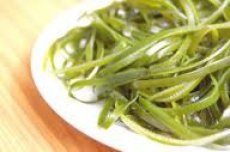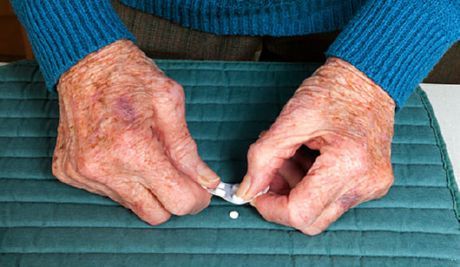New publications
Seaweed may help treat arthritis
Last reviewed: 01.07.2025

All iLive content is medically reviewed or fact checked to ensure as much factual accuracy as possible.
We have strict sourcing guidelines and only link to reputable media sites, academic research institutions and, whenever possible, medically peer reviewed studies. Note that the numbers in parentheses ([1], [2], etc.) are clickable links to these studies.
If you feel that any of our content is inaccurate, out-of-date, or otherwise questionable, please select it and press Ctrl + Enter.

Seaweed tablets may help treat arthritis, one of the most common inflammatory joint diseases. This is the conclusion reached by scientists at the Scripps Institution of Oceanography at UC San Diego.

Scientists have discovered that algae destroying coral reefs in Hawaii secrete a substance with powerful anti-inflammatory properties. They say it could be used in medicine to treat other chronic diseases, from cancer to heart disease.
The algae are filled with tiny photosynthetic microorganisms called cyanobacteria, which also produce promising compounds that can fight bacterial infections. They were first discovered by researchers in 2008 off the coast of Kona, Hawaii. The researchers sampled the algae during the 2009 bloom because they were growing and suffocating the corals. They also produced a chemical that bleached the corals. After years of research, they found that the algae contained a substance called honaucins, which has anti-inflammatory properties.
"These compounds could be useful in many areas of medicine, such as treating chronic inflammatory diseases, where there are currently no effective treatments (only painkillers and non-steroidal anti-inflammatory drugs are used to relieve symptoms). Certain species of cyanobacteria and algae are known to produce promising new compounds that could be used for drug development and other purposes," comments Professor William Gerwick.
According to U. Gervik, the results of the work are a good illustration of how carefully people should look at the environment, because even pests, as it turns out, may not be pests at all. "There is a long way to go before the results of the work can be applied in practice, but it is the only way that can lead to the creation of more effective drugs," says U. Gervik.

 [
[